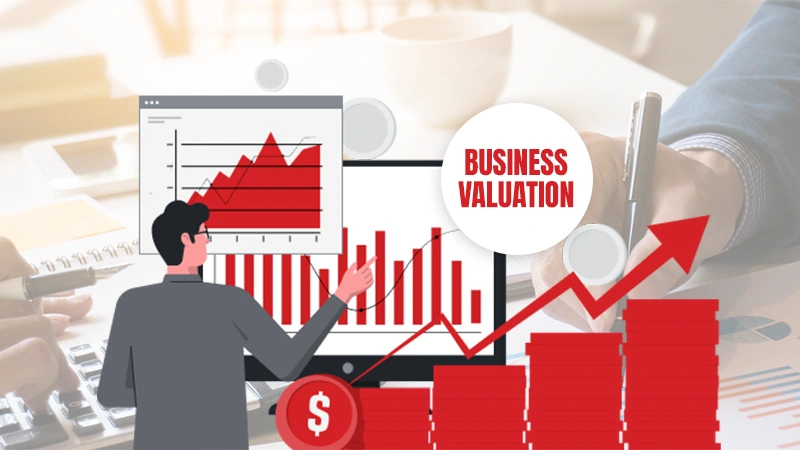Demystifying Business Valuation: How to Determine the True Value of Your Business

As a business owner, you know how important it is to have a good understanding of your company’s financial health and future prospects. But how do you determine the true value of your business? What factors affect the value of your business, and how can you ensure that you are getting a fair price for your hard work and investment? In this article, we will explore the methods of business valuation and the key factors that affect business value.
Methods of Business Valuation
There are several approaches to valuing a business, and the choice of method will depend on the nature of the business and the purpose of the valuation. The three main methods of business valuation are:
- The Income Approach: This method involves estimating the present value of the future cash flows that the business is expected to generate. To use this approach, you need to have a good understanding of the company’s historical financial performance, as well as its growth potential and risks. You will also need to make assumptions about future revenue growth rates, profit margins, and capital expenditures. This method is often used for privately held businesses.
- The Market Approach: This method involves comparing the subject company to similar companies that have recently sold or gone public. This approach relies on the assumption that the market will pay a similar price for similar businesses. To use this approach, you need to identify a group of comparable companies and determine their market value multiples (such as price-to-earnings ratio or price-to-sales ratio). You will then adjust these multiples based on differences between the comparable companies and the subject company, such as size, growth rate, and risk level. This method is often used for publicly traded companies.
- The Asset-Based Approach: This method involves estimating the value of the company’s assets (such as property, equipment, inventory, and intellectual property) and subtracting its liabilities. This approach is most appropriate for companies with substantial tangible assets, such as real estate or manufacturing firms.
Read: How to Conduct a Restaurant Appraisal (2023 Guide)
Financial Analysis and Forecasting
To apply the income approach to valuation, you need to conduct a thorough financial analysis of the subject company. This includes analyzing its historical financial statements (such as income statement, balance sheet, and cash flow statement) and calculating financial ratios (such as return on investment, debt-to-equity ratio, and gross margin). You should also compare the company’s financial performance to industry benchmarks and identify any trends or anomalies. To forecast future cash flows, you can use various techniques such as regression analysis, time-series analysis, or scenario analysis. The key is to be realistic and conservative in your assumptions and to consider the impact of various external factors such as changes in the market, customer behavior, or competition.
Industry and Market Analysis
To apply the market approach to valuation, you need to conduct a thorough industry and market analysis. This includes identifying the industry trends, market size, key players, and regulatory environment. You should also analyze the company’s competitive position, market share, and customer base. To select comparable companies, you need to consider factors such as industry classification, geographic location, size, growth rate, and financial performance. You should also adjust the multiples based on differences between the comparable companies and the subject company.
Other Factors Affecting Business Value
Apart from financial and market factors, there are other factors that can affect the value of a business. These include legal and regulatory issues (such as pending litigation or compliance risks), intellectual property (such as patents, trademarks, or copyrights), customer concentration (if a significant portion of the revenue comes from a few customers), and management quality (if the business heavily relies on the founder or key
personnel). It’s important to conduct due diligence to identify and mitigate potential risks and uncertainties that could affect the value of the business. This may involve reviewing contracts, leases, and licenses; conducting background checks on key personnel; and obtaining expert opinions on legal or technical matters.
Read: Top 10 Reasons for Business Valuation in 2023
Conclusion
In conclusion, business valuation is a complex and multifaceted process that requires a combination of financial, market, and industry analysis. The choice of valuation method depends on the nature of the business and the purpose of the valuation. To ensure that you are getting a fair price for your business, it’s important to work with a qualified business valuation expert who has experience in your industry and can provide an objective and well-supported valuation report.
Remember that business valuation is not a one-time event but an ongoing process that should be updated regularly to reflect changes in the business and the market. By understanding the key factors that affect business value and taking proactive steps to manage risks and enhance value, you can maximize the return on your investment and achieve your business goals.














